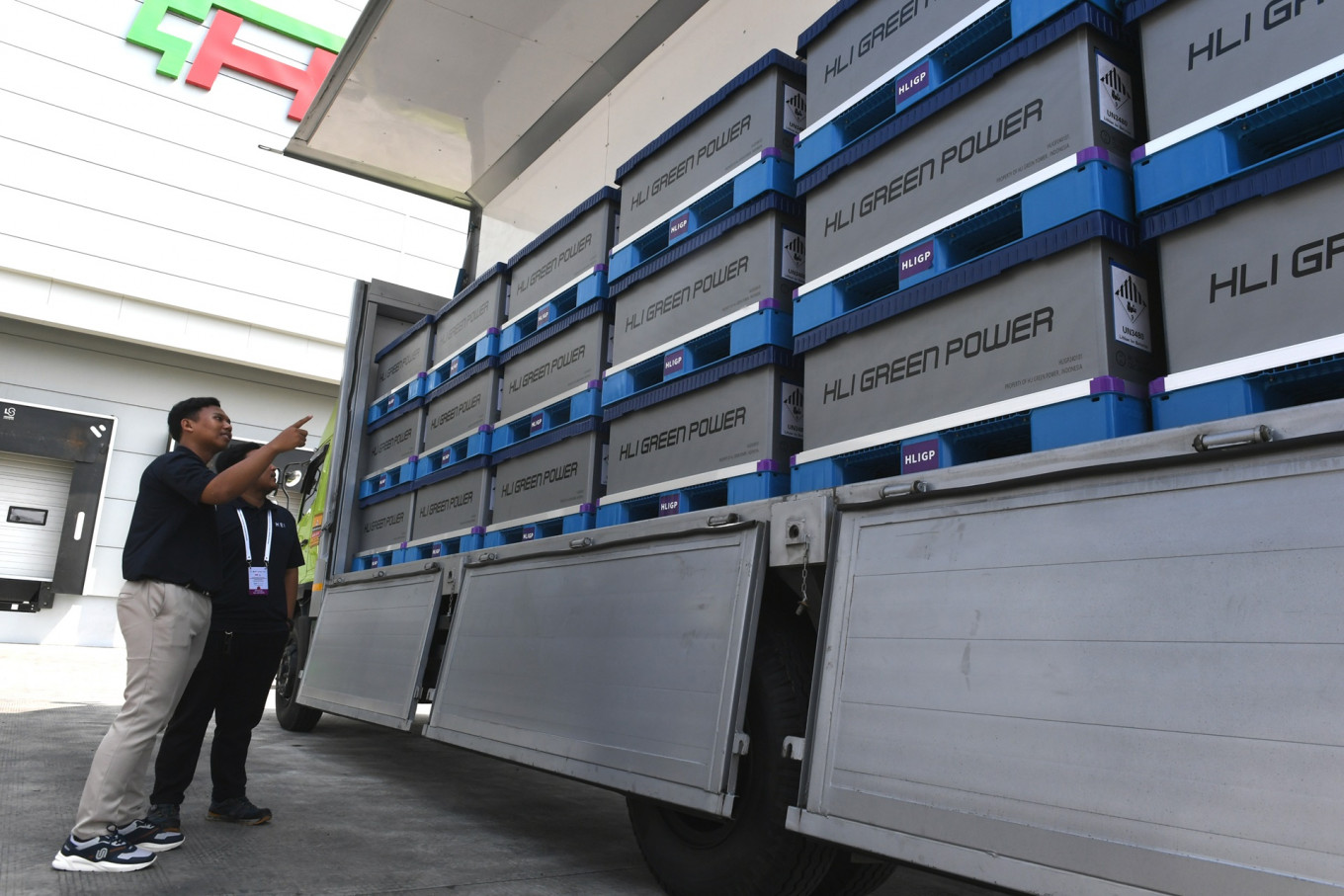Popular Reads
Top Results
Can't find what you're looking for?
View all search resultsPopular Reads
Top Results
Can't find what you're looking for?
View all search resultsThe good old days of global trade
Our government must work on the assumption that global trade is no longer what it used to be.
Change text size
Gift Premium Articles
to Anyone
A
lmost a month after Donald Trump began his second term as president of the United States, there can be no doubt about the shift in Washington’s trade policy from friendshoring to reshoring.
Under friendshoring, the US government would try to use its economic and political leverage to alter global supply chains so that more of the products and services sold in the US would originate in or run through countries considered political allies, or “friends”, particularly in industries deemed to be of strategic importance.
Reshoring, by contrast, takes that concept one step further by bringing back home manufacturing activities or services previously outsourced to other countries, usually to take advantage of cheap labor there.
Key Biden-era policies already pointed in that direction, such as the CHIPS Act to lure semiconductor manufacturers from East Asia to the US and the Inflation Reduction Act to attract investment in the domestic critical minerals, clean energy and electric vehicle industries, but Trump has doubled down on the concept.
While the term “reshoring” assumes the vantage point of a high-income economy that previously “offshored” production to developed economies, the motivation for reshoring, namely to be more self-reliant as a country and create jobs at home, applies just as much to an emerging economy like Indonesia’s.
Jakarta must sympathize with Washington’s reshoring policy, because we too aspire to produce whatever we can at home, rather than consume goods and services from other countries. Hardly a day goes by without some official lamenting the “flood of imports” from China.
Our desire for homeshoring is understandable, even though we have more to lose than to gain as this concept becomes the new normal, because emerging economies like ours have long enjoyed massive inflows of foreign direct investment from global corporations building factories here to make goods for export.
Our problem is that cheap labor no longer sells like it used to, because factories today require only a small fraction of the manpower they did 20 or 30 years ago.
With increasing automation, labor accounts for a decreasing portion of unit costs, while energy and raw materials make up larger shares of the total.
The jury is still out on whether globalization is in permanent reverse, but right now, it is not looking good, so our government had better work on the assumption that global trade is no longer what it used to be.
That means we cannot copy-paste Vietnam’s policy based on the China+1 strategy.
Vietnam pitched itself as an alternative production base for manufacturers looking to diversify away from China so as to maintain access to Western markets even if Western governments imposed bans or tariffs on goods from China.
That no longer works if the US, Europe and other major markets shift from friendshoring to reshoring.
Instead, we must improve our manufacturing industry so that even if we cannot rely on export markets, at least we can produce competitive goods for our own market in a concept known as import substitution.
The large domestic market is our strength. The government is keenly aware of that and has used that argument to attract investment.
At the same time, while doors are closing in global trade, we should keep them open in the region.
If ASEAN or the Regional Comprehensive Economic Partnership (RCEP) can uphold the principles of David Ricardo based on comparative advantage, it will make our region a magnet for investment from companies longing for the good old days.











